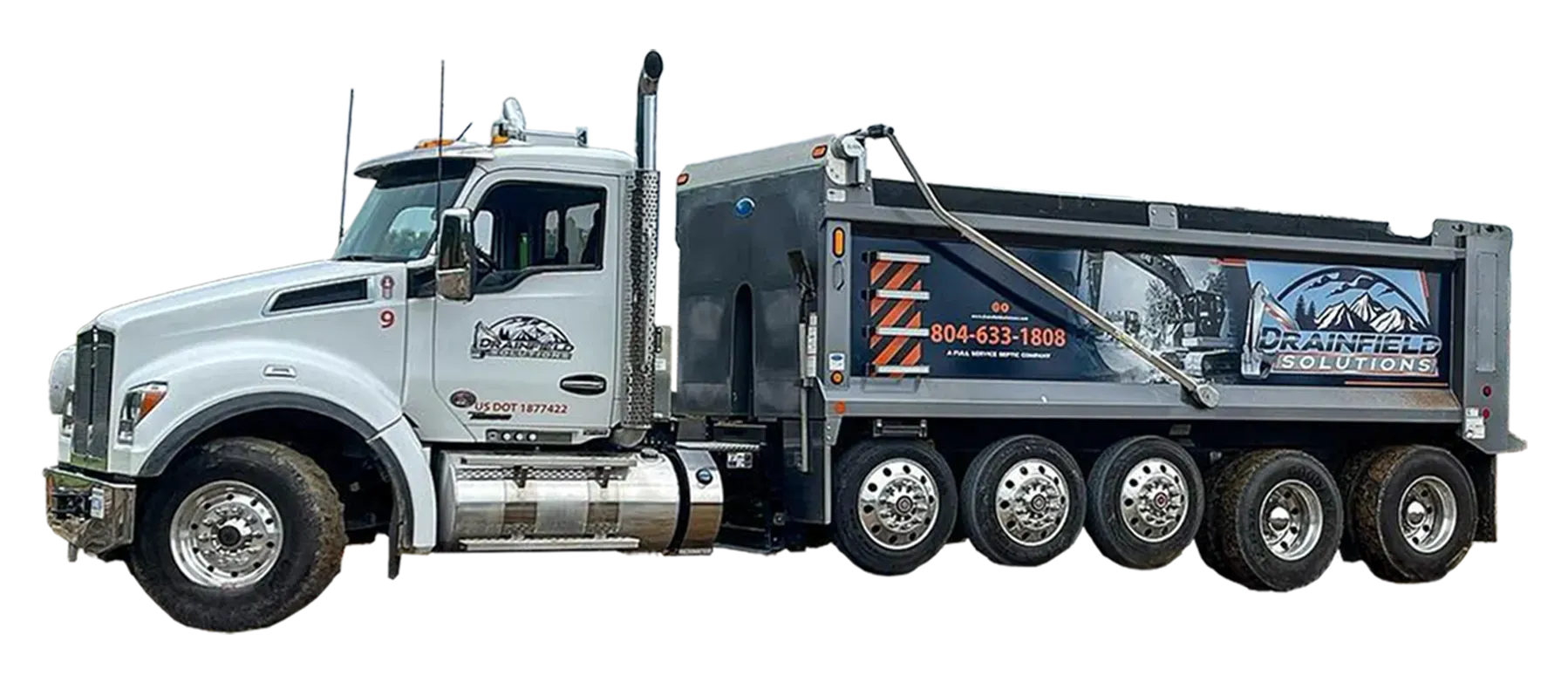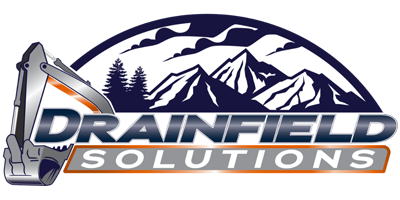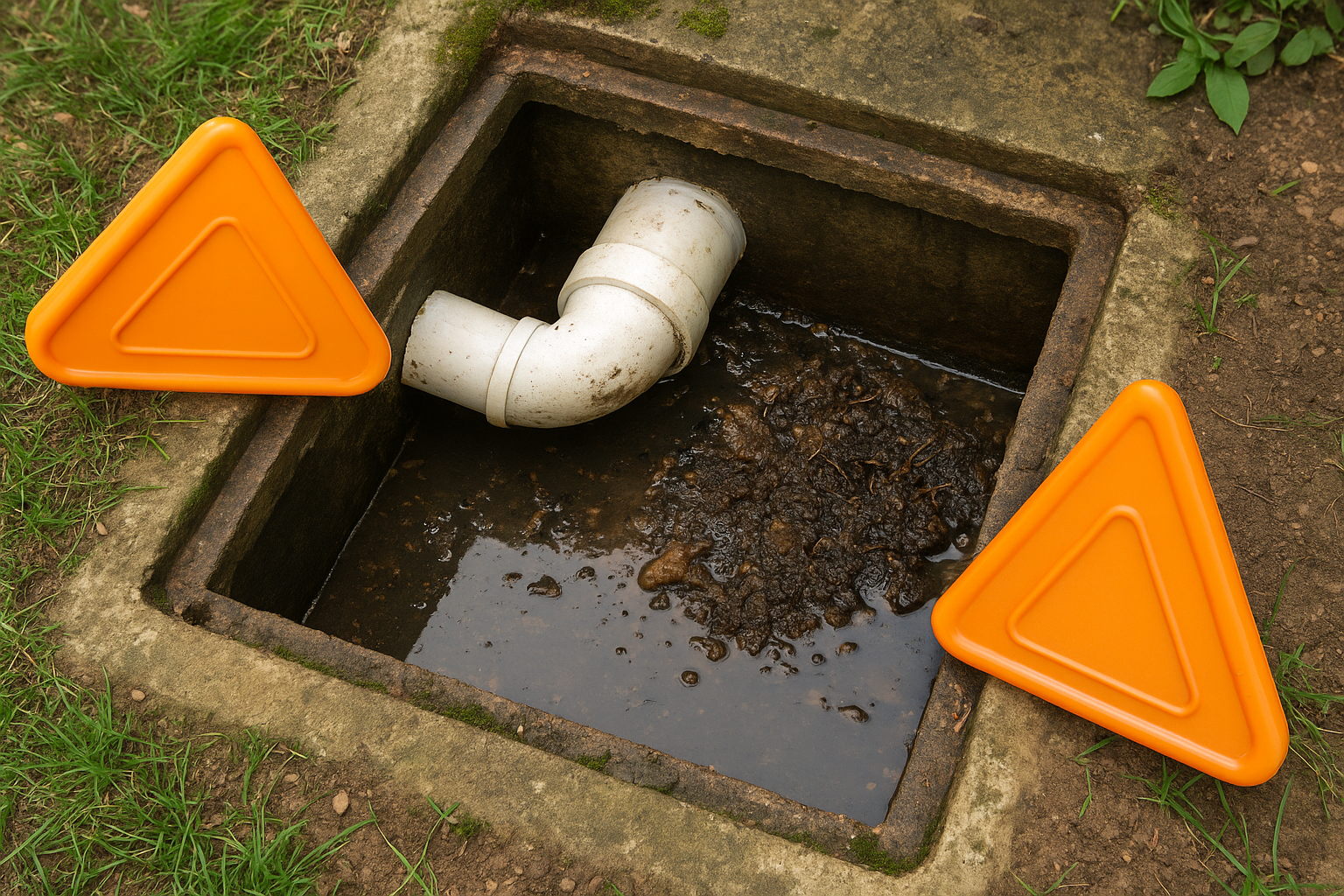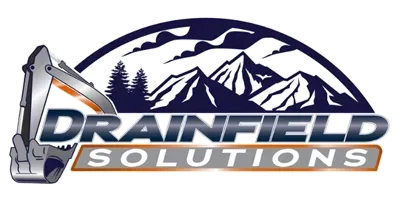
The Importance of Septic Tank Pumping in Central Virginia
January 5, 2025
Septic tank pumping might not be at the top of your to-do list, but it’s one of the most important things you can do to keep your system running smoothly. A well-maintained septic tank protects your drainfield from clogs, backups, and costly repairs. Neglect it, and you could end up with a stinky (and expensive) problem. Here’s why septic tank pumping is a must for keeping your drainfield in top shape.
What Happens When You Skip Septic Tank Pumping?
- Overflowing Solids: Solid waste builds up in your septic tank over time. If not removed, it can spill into your drainfield, which isn’t designed to handle solids.
- Clogged Pipes: Solids in the drainfield clog pipes and soil, disrupting the wastewater filtration process. This can lead to water pooling and reduced system performance.
- System Backup: Wastewater can back up into your home or yard, creating unpleasant smells and a messy cleanup.
- Drainfield Failure: A clogged or damaged drainfield can stop working entirely, requiring expensive repairs or replacement.
Skipping pumping might save you a little time now, but it’ll cost you big later.
Why Pumping Protects Your Drainfield
- Prevents Solids from Escaping: Regular pumping removes sludge and scum before they reach the drainfield, keeping it clean and clog-free.
- Keeps Bacteria Balanced: Pumping ensures bacteria have the space they need to break down waste efficiently and keep the system functioning.
- Reduces Strain on the Drainfield: A full tank sends excessive wastewater to the drainfield, increasing the risk of oversaturation and poor filtration.
Your septic tank and drainfield work as a team—taking care of one helps the other.
How Often Should You Pump Your Septic Tank?
- Household Size: The more people, the more waste your system needs to handle. Larger households require more frequent pumping.
- Tank Size: Larger tanks can hold more waste, so they may not need to be pumped as often.
- Water Usage: High water usage fills the tank faster, so if you’re a family of long-shower lovers, you might need pumping more often.
- Garbage Disposal Usage: Using a garbage disposal adds solid waste to your tank, increasing the need for pumping.
Most septic tanks need pumping every 3–5 years, but when in doubt, consult a professional.
Signs It’s Time to Pump Your Septic Tank
- Slow Drains: Sinks, showers, or toilets draining slowly could mean your tank is full.
- Foul Odors: A sewage smell in your yard or home is a clear sign your tank needs attention.
- Pooling Water: Standing water near the drainfield often indicates your system is oversaturated.
- Lush Grass Over the Drainfield: Overly green patches of grass might look nice but can mean your drainfield is absorbing excess nutrients.
If you spot any of these signs, it’s time to schedule a pumping before things get worse.
Tips for Keeping Your Septic System Healthy Between Pumpings
- Conserve Water: Spread out water usage by doing laundry over several days and fixing leaky faucets. Reducing water flow lightens the load on your system.
- Watch What You Flush: Stick to toilet paper and human waste—everything else belongs in the trash. Wipes, feminine products, and grease can clog your system.
- Use Septic-Safe Products: Harsh chemicals and antibacterial cleaners can kill the beneficial bacteria in your tank. Opt for gentle, septic-safe cleaning products.
- Avoid Heavy Traffic on the Drainfield: Cars, trucks, and heavy equipment can compact the soil and damage pipes. Keep vehicles off the area.
- Schedule Regular Inspections: Routine checkups can catch issues early and keep your system running efficiently.
A little TLC between pumpings goes a long way in extending the life of your septic system.
The Cost of Pumping vs. The Cost of Repairs
- Pumping Costs: A few hundred dollars, depending on tank size and location. This small investment keeps your system in top shape.
- Drainfield Repairs: Several thousands of dollars—or more for a full replacement. Repairs are far more expensive than regular pumping, so staying proactive is a no-brainer.
Spending a little now on pumping can save you from spending a lot later on major repairs.
Why Choose Drainfield Solutions for Your Septic Needs
At Drainfield Solutions, we’ve been helping homeowners maintain healthy septic systems since 2005. We know how important regular pumping is for keeping your drainfield in top condition, and we’re here to make the process as easy and stress-free as possible.
Call Drainfield Solutions today at 804-633-1808 or visit our contact page to schedule your next septic tank pumping or learn more about our services. We help you keep your drainfield healthy, your septic system running smoothly and your home free of unpleasant surprises!
Share Post
Latest Posts
Ready to Take the Next Step?
Whether you're in need of a system inspection or regular maintenance, Drainfield Solutions is here to help. Get in touch today for reliable service you can trust.






